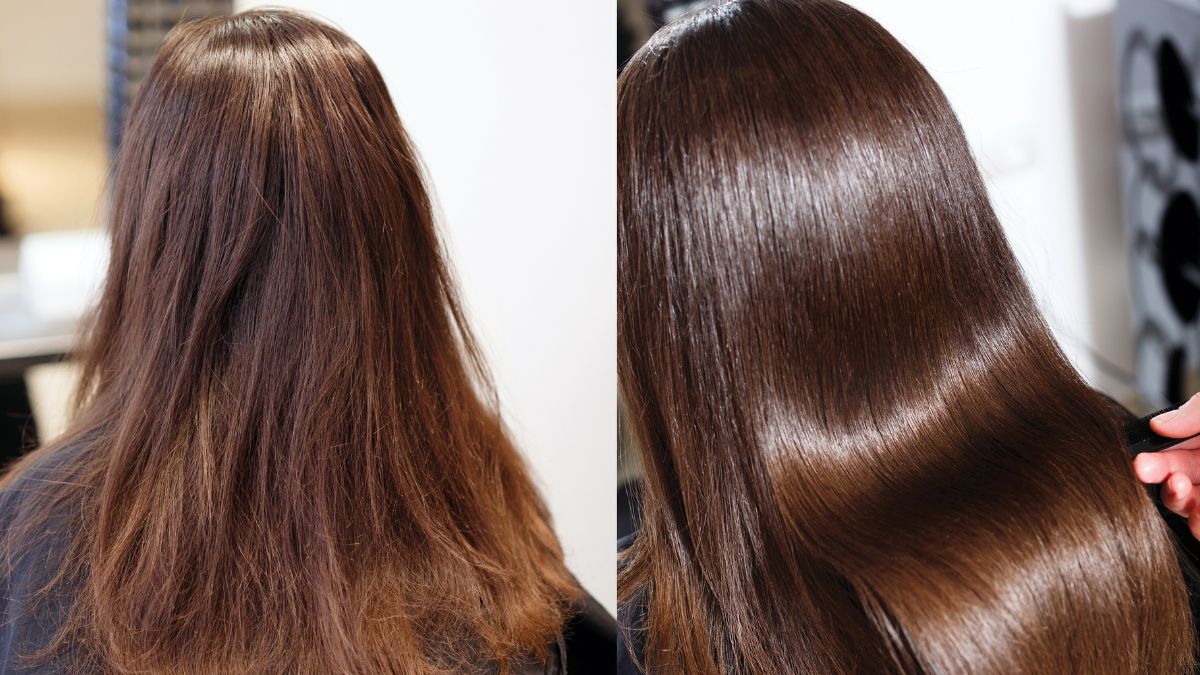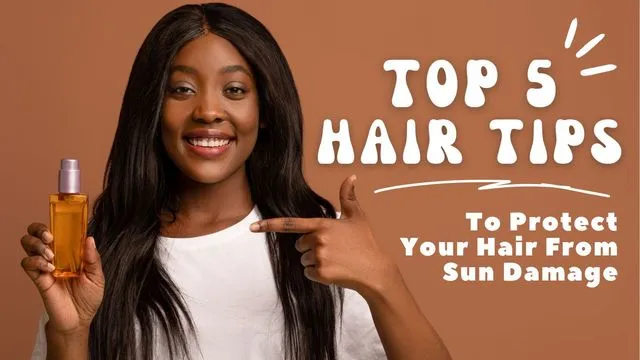- By Priyanka Munshi
- Wed, 29 May 2024 11:01 AM (IST)
- Source:JND
Keeping your hair in good condition requires protecting it from sun damage. Hair proteins can be weakened by prolonged sun exposure, resulting in split ends, brittleness, and dryness. It can also remove natural oils from your hair, giving it a lifeless, drab appearance. Your scalp can even suffer from sun damage, turning it brittle and dry.
Wearing caps or scarves, using leave-in conditioners with UV protection, and applying hair oils or serums are all good ways to protect your hair. By taking these precautions, you can keep your hair looking good and feeling healthy by maintaining its moisture, strength, and general appearance. Therefore, here is all the advice you need to simply shield your hair from sun damage.

Protecting your hair from sun damage is crucial for its health and appearance.(Image Credit:Canva)
Put On A Cap
As with sunscreen, wear a wide hat, cap, or scarf whenever you leave the house to shield your face and neck from the sun's harmful rays.
Also Read: 5 Surprising Benefits Of Eating One Spoon Of Ghee Everyday In Morning On An Empty Stomach
Regularly Use A Hair Mask
Did you know that hair masks made of aloe vera, honey, curd, banana, and olive oil can heal sun-damaged hair? For optimal effects, leave the mask on for more than an hour before shampooing and conditioning.
Maintain A Nutritious Diet
A healthy diet rich in fruits, vegetables, whole grains, and water can strengthen hair defenses from the inside out, avoiding vitamin and mineral deficiency-related hair loss.

Your scalp can even suffer from sun damage, turning it brittle and dry.(Image Credit:Canva)
Always Tie Your Hair
You can shield your hair from harmful UVA and UVB rays by wearing your hair in a bun or plait if you're not a fan of hats.
Apply Hair Protection Spray
Use a hair protection spray to shield your hair from damaging UVA and UVB rays for more than 12 hours, preventing frizz and sun damage.
(Disclaimer: This article is for informational purposes only. It is not a substitute for professional advice, diagnosis or treatment.)

